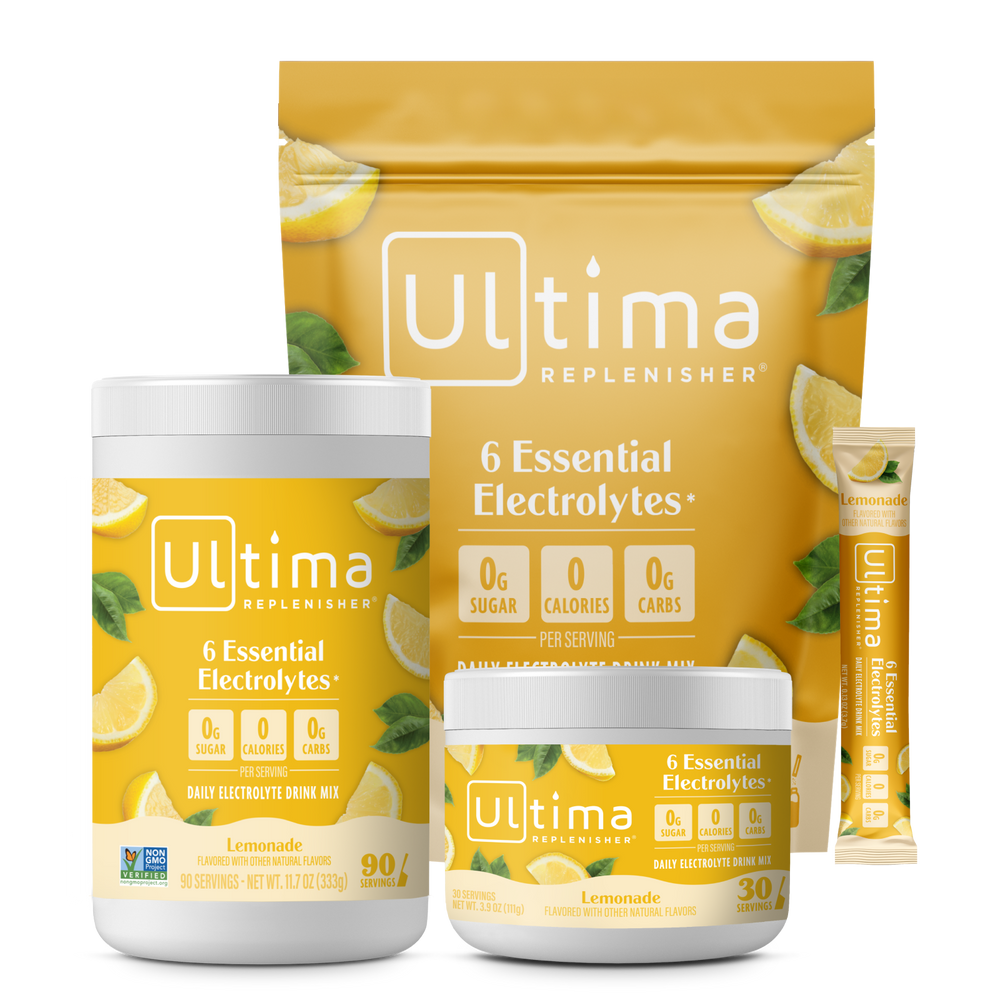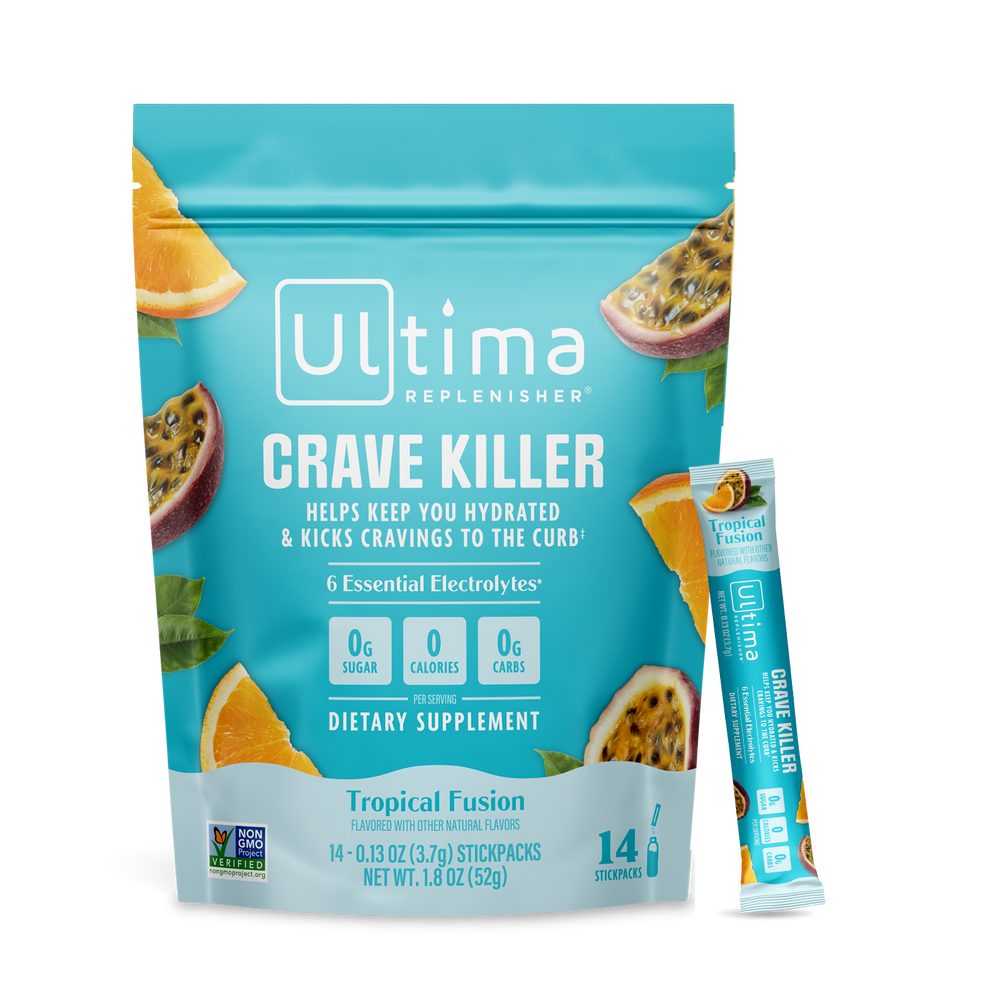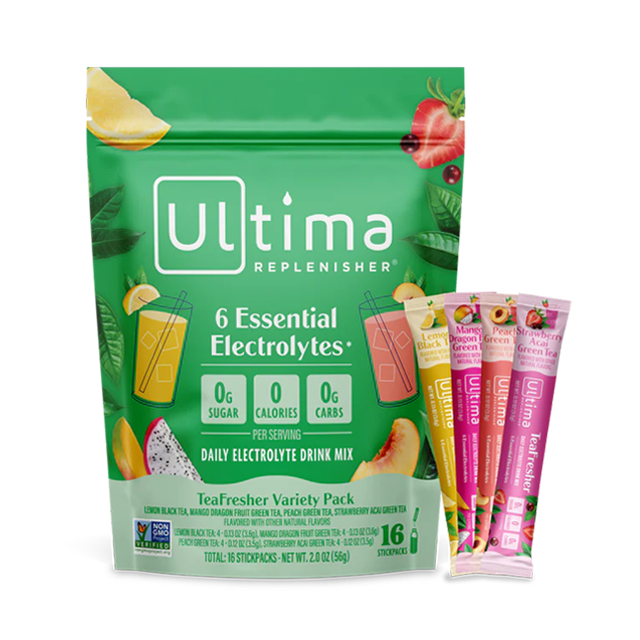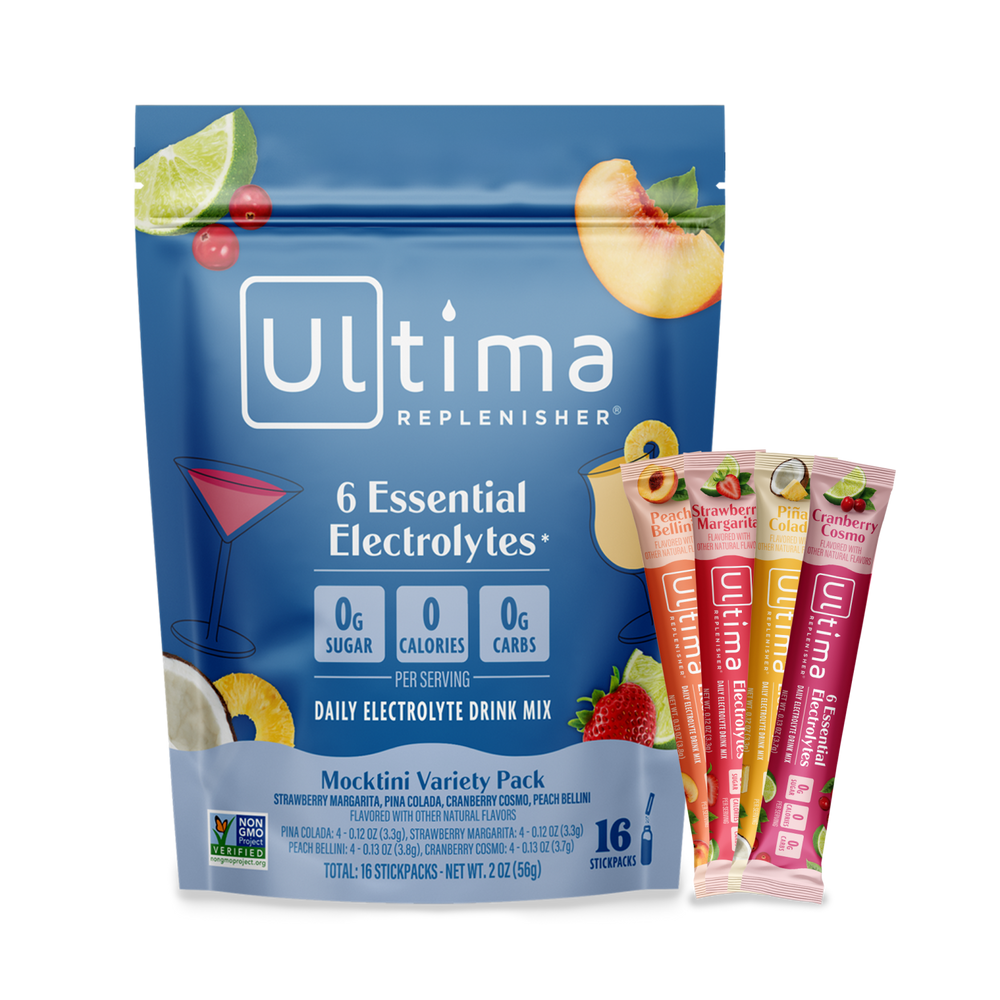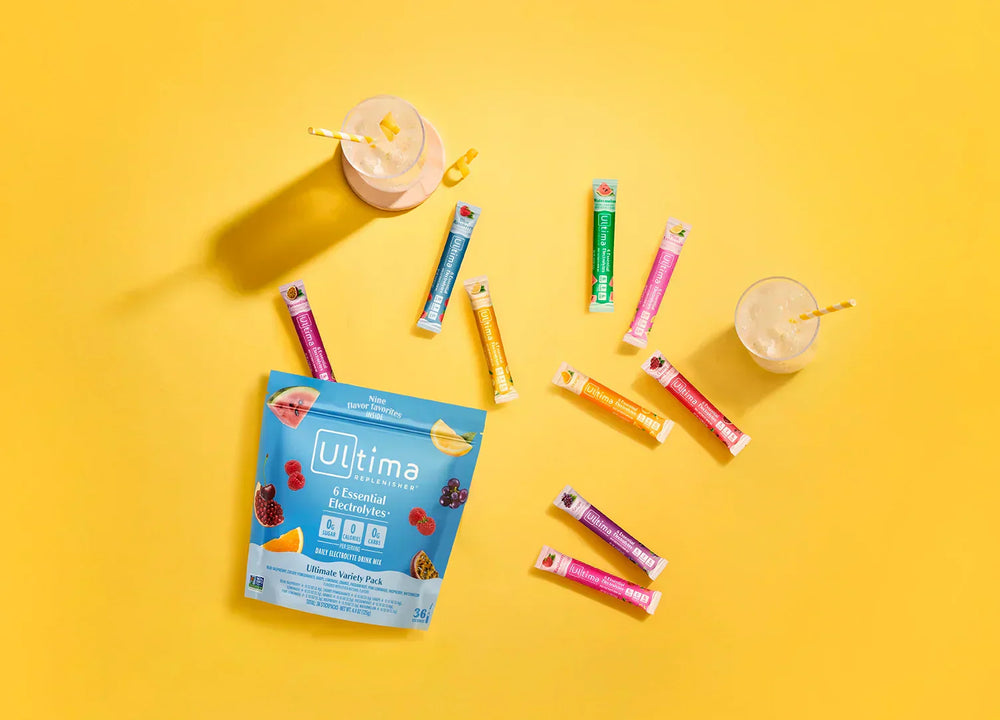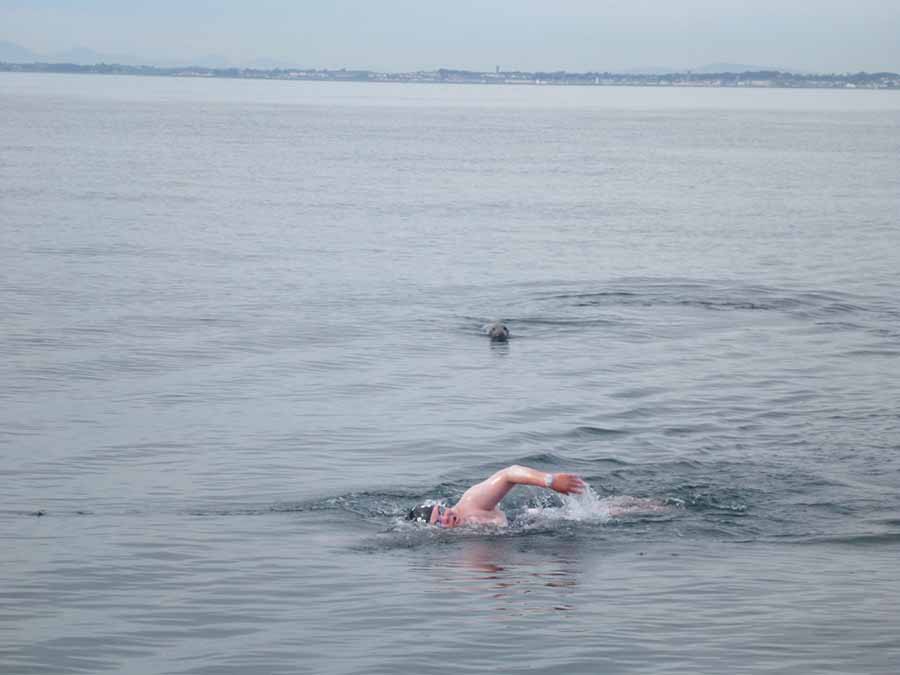
Why Open Water Swimmers Need Electrolytes
Does swimming in salt water dehydrate you?
Dispelling a dangerous misconception about seawater
by Elaine K. Howley, an open water swimmer
“Water, water, everywhere, And all the boards did shrink; Water, water, everywhere, Nor any drop to drink.” —Rime of the Ancient Mariner, Samuel Taylor Coleridge
There’s an insidious and potentially dangerous misconception floating around in the marathon swimming community: For swims like the English Channel that take place in cold, ocean water, swimmers don’t need to worry about electrolyte replacement. This concept has been perpetuated by a handful of well-respected people in the community and is based on the incorrect assumption that swimmers who train and compete in cold water won’t sweat and thereby won’t deplete their electrolyte stores.

And, in the event that a well-trained swimmer does manage to work up a sweat in the 62-degree F water of the English Channel, for instance (I can personally attest that this happens), they’ll probably end up taking in plenty of “salt” with the inadvertent ingestion of water that comes during any open water swim. So you’re covered, these “experts” say. You don’t need electrolytes. Just take your traditional carbohydrate powder, some water, and you’ll be just fine until you hit French soil 14 hours later. (That’s the time it takes for the average swimmer to get across the world’s most famous channel.) Photo: Elaine Howley at the start of her 2009 English Channel swim. Photo by Martin Sandham Say what? I couldn’t believe what I was reading the first time someone in the community positioned these misconceptions on an email forum as though they were well known, legitimate facts. “Everyone knows you’ll get plenty of electrolytes from the saltwater, so don’t waste your money on those supplements,” the posting read. Actually, this approach is not only a disservice to swimmers who want to perform their best, but it could be dangerous in some cases.
Electrolytes vs. Seawater
Humans need balanced electrolytes just to survive, and athletes in the throes of a difficult athletic event especially need to pay attention to and respond to their bodies’ fluctuating electrolyte needs. Sweating isn’t the only way we get depleted—as the body uses electrolytes to maintain function and performance, these critical components of human health have to be replaced from the outside. So right off the bat, the premise that cold water swimmers don’t need electrolytes is false. In addition to the fallacy of thinking, we’re not using or losing electrolytes while swimming in cold water, the chemical make-up of an electrolyte product like Ultima is quite different from the average sample of seawater. Ultima contains the six electrolytes (called chelated minerals) required by the body in a balanced formulation that’s optimal for athletic performance.- Calcium: Critical not just to bone health, calcium also transmits nerve signals and enables muscles to contract and grow. Calcium deficiency can cause cramps, and you definitely do not want to cramp up in the middle of a channel crossing.
- Chloride: Chloride helps keep tendons and joints healthy and helps regulate the acidity of our blood. Too little chloride and you may experience poor muscle contractions and difficulty digesting. During a channel swim, that means the fuel you’re ingesting on a regular basis can’t exit your stomach. If it can’t exit the stomach, it can’t help fuel you, and as it sits there, you’ll likely experience gastric distress, which has stopped an untold number of swims in their tracks.
- Magnesium: Magnesium helps the body convert glucose to energy and metabolize fat—very important things to a body in the middle of a 10- to 20-hour, cold water swim. Magnesium deficiency is common and low levels can affect your mood and sense of well-being, causing the “blues” during a huge endurance event. Long-distance athletic events like a channel crossing are often won or lost in the mind, so it’s important to maintain balance in your magnesium levels throughout to give yourself a competitive edge over your inner demons and doubts.
- Phosphorus: The body uses phosphorus in nerve signaling, heartbeat, and the growth, maintenance, and repair of cells and tissues. Phosphorus helps the body make adenosine triphosphate (ATP), our “energy currency” or molecular energy source. Humans simply can’t move without ATP.
- Potassium: Potassium helps nerves transmit signals and muscles contract. It also helps regulate water balance in the body. Potassium is lost through sweating, so athletes need more than the average person. (Yes, even you cold water swimmers!)
- Sodium: Sodium plays an important role along with potassium in helping muscles to expand and contract, but if you have too much of it, it can actually rob the body of the potassium it needs.
On the other hand, seawater contains only five of the six electrolytes we need, and they’re not calibrated for optimal athletic performance. They’re listed here in order of typical content, with chloride and sodium having the highest concentrations and the other three being far less prevalent in seawater. • Chloride • Sodium • Magnesium • Calcium • Potassium  Examples of water salinity (values in parts per thousand) Credit: Peter Summerlin, CC BY-SA 3.0
Examples of water salinity (values in parts per thousand) Credit: Peter Summerlin, CC BY-SA 3.0
Seawater also contains these additional components.
- Vanadium: Vanadium is a trace metal that’s toxic in large doses. Some marine animals use vanadium to aid enzymatic processes, and it could be a trace micronutrient used by mammals, including humans, but very little is known about this possibility.
- Sulfur: Essential to life, sulfur is found everywhere and was known to ancient peoples; the yellow, rotten-egg-smelling element is referenced in the Bible as “brimstone.” As a disulfide, it’s a component of keratin found in skin, hair, and feathers.
- Bromine: Bromine is highly soluble, and much of the Earth’s reserves have accumulated in the oceans. Commercially, it’s extracted from brine pools and used as a fire retardant. Fun fact: When volatile organobromine compounds are exposed to sunlight, they can release their bromine atoms into the atmosphere, causing ozone depletion. Very little is known about whether bromine is essential to mammalian health, but some recent studies have suggested it’s used in tissue development. Bromide salts were once used as a medical sedative, i.e. anesthesia, before being replaced by shorter-lasting drugs.
- Carbon: Carbon is the 6th element on the periodic table and forms the backbone of all life on Earth. From the softest graphite to the hardest diamond, carbon can take a range of shapes and roles in the natural world. It forms roughly 18 percent of our body by mass, making it the second most abundant element in the human body behind oxygen. Besides these elements, seawater also contains any number of organic or inorganic compounds that could be detrimental to your health and the health of your channel swim. Pollution in the form or oil or plastics? Yep. Bacteria and other forms of tiny sea life that could make you sick? You bet. Tiny traces of all of that and much, much more are likely in every mouthful of seawater you take in, so swallow carefully.
Measurement is Key
It’s virtually impossible to not take in a little water when breathing in open water, but how much and how frequently is not a controllable or calculable factor. And purposely ingesting salt water is a bad idea. As Coleridge noted in his “Rime of the Ancient Mariner,” drinking seawater will kill you. The human body was designed to cope with just a little saltwater at a time; some marine animals have adaptive anatomy to filter out the salt and allow them to extract the water they need from seawater, but we’re not built that way. So, does swimming in salt water dehydrate you? The high sodium content of seawater causes the body to retain water in an effort to dilute the high salt content. This leads to high blood pressure, which puts more strain on an already taxed heart, and increased urination as the body tries to correct the imbalance, causing the kidneys to ramp up their efforts, too. As the body flushes out that excess fluid that it’s robbed from working muscles and cells, that dehydrates the body. The final insult? As that volume of fluid leaves the body, it takes the other electrolytes you need with it. So your body has just worked really hard to leave you with fewer fluid resources and electrolytes than it had before you drank that saltwater. There’s simply no way that’s beneficial to swimming across a channel. Besides the potential health implications of ingesting too much seawater, water salinity is not a uniform concept across locations. If you’ve ever had the pleasure of swimming in the Mediterranean Sea, you probably noticed the water seems much saltier there than it does in the Atlantic or Pacific oceans. That’s because it is; surface salinity varies greatly around the globe, and you can’t ever be sure what the salt level of a body of water will be as it can change with the seasons, wind, water temperature, currents, and other environmental factors. Additionally, as shown above, it’s not just salt that the body needs. The argument can be made that phosphorus, magnesium, calcium, and potassium are just as important, if not more so than sodium and chloride in making the human body move. This is why the salt tablets of a bygone athletic era are not nearly as popular these days—they simply can’t offer optimal performance. 
Concentrations of various salt ions in seawater. Credit: Tcncv derivative work from Hannes Grobe, Alfred Wegener Institute for Polar and Marine Research, Bremerhaven, Germany, CC BY-SA 2.5
Control and Balance
With a sport like marathon swimming where so many formidable forces are outside of our control—weather, currents, and boat traffic, to name just three—nutrition is one of the few areas where we have the upper hand. We understand the nature of the human body at work and the science behind peak performance. And with that powerful knowledge, why wouldn’t you give yourself every chance of success by using a balanced and complete electrolyte replacement product like Ultima Replenisher? It seems silly to me to rely on fickle Mother Nature for this critical component of nutrition when we have a reliable and tasty alternative that works and is easy to take in even in the roughest of seas. So my advice to other seawater swimmers out there: Skip drinking the water and start swimming across it already. Your body and your swimming success depend on it.
-------------------------------------------

Ultima ambassador, Elaine Howley's impressive resume includes the "Triple Crown" of ultra-marathon, open-water swims — solo crossings of the Catalina Island channel (20.4 miles), the English Channel (21 miles), and a circumnavigation of Manhattan Island (28.5 miles). Adding to her swimming skill set is certification as an ice swimmer. She completed a 1-mile swim in Boston Harbor's 41-degree water in December 2012 without a wet suit. Visit her blog to learn more about Elaine. And follow her on social: Twitter
